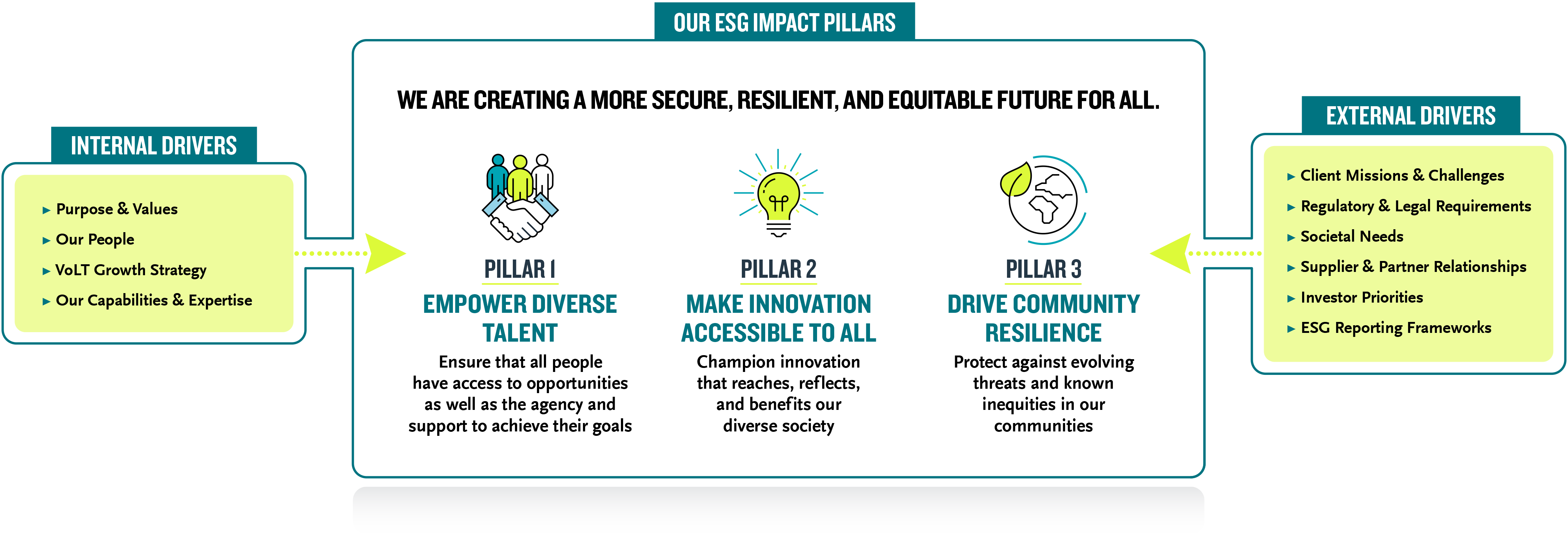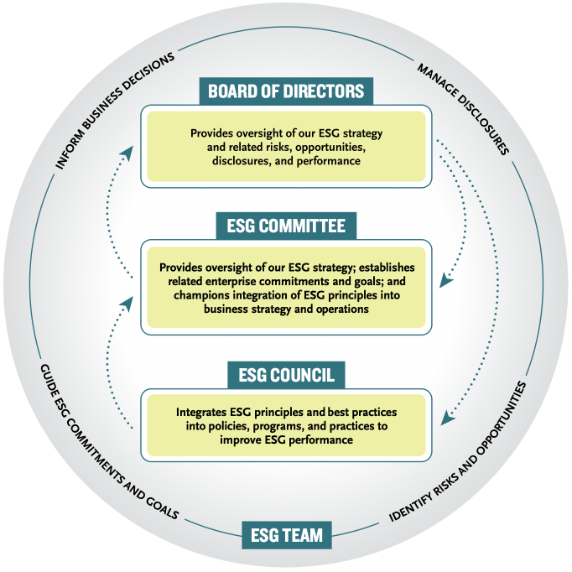We use the AI-powered business intelligence platform, Datamaran, as a complement to our ESG management processes, thereby harnessing innovation to power a continuous data-driven review of ESG-related risks in our regulatory, competitive, and operating contexts.
Our 2022 materiality assessment and continuous use of Datamaran throughout 2023 confirmed that we remained focused on the ESG topics that are most relevant to our business and stakeholders. These are our material ESG topics: the topics that could most affect Booz Allen's ability to create long-term shareholder value. They reflect what is important to stakeholders such as investors, employees, and clients, and are aligned with Booz Allen's aim of positive impacts on our clients, society, the environment, and the economy.
We used Datamaran to assess and prioritize the 26* ESG topics most commonly identified as material by companies in our sector. For a list of all ESG topics assessed and their definitions, refer to the resource guide on our website. The materiality assessment took into consideration internal and external stakeholder priorities based on an employee survey, our prior ESG disclosures, peer and sector disclosure benchmarking, regulatory and legal requirements, and media coverage.
The material topic list shows the set of prioritized topics assessed to be at the intersection of stakeholder priorities and our firm's greatest impact. Throughout FY23, we had no notable changes to our material topics. To help stakeholders navigate our report, we identify the material ESG topics addressed in a report section in the introduction to that section.
In the year ahead, in addition to using Datamaran and other business intelligence platforms to continuously monitor stakeholder priorities and ESG-related business risks, we plan to conduct a materiality assessment informed by the latest iterations of global reporting standards, regulatory requirements, and disclosure expectations.






